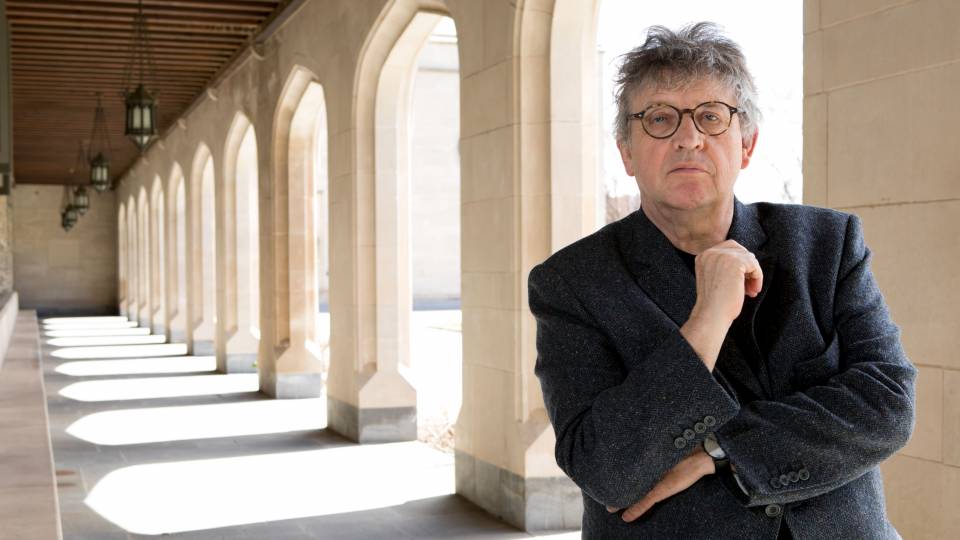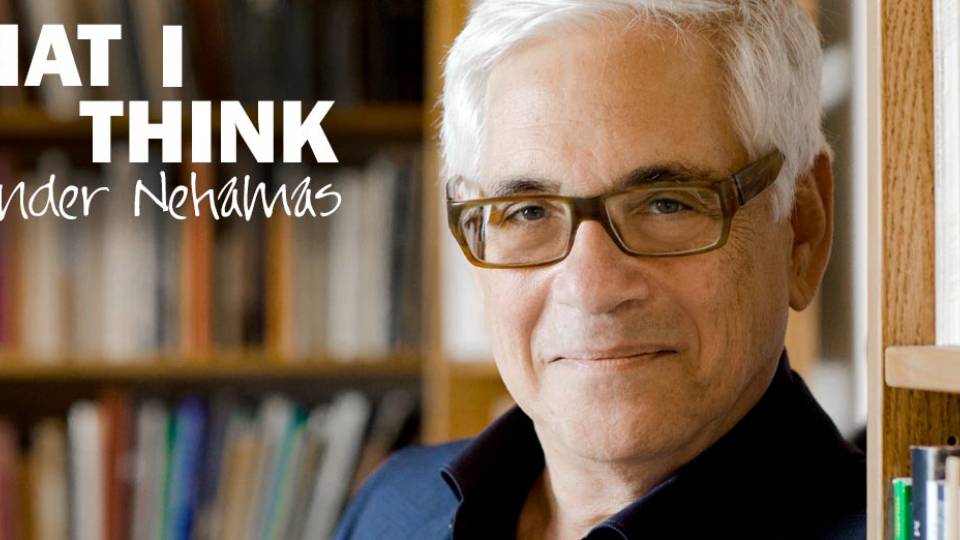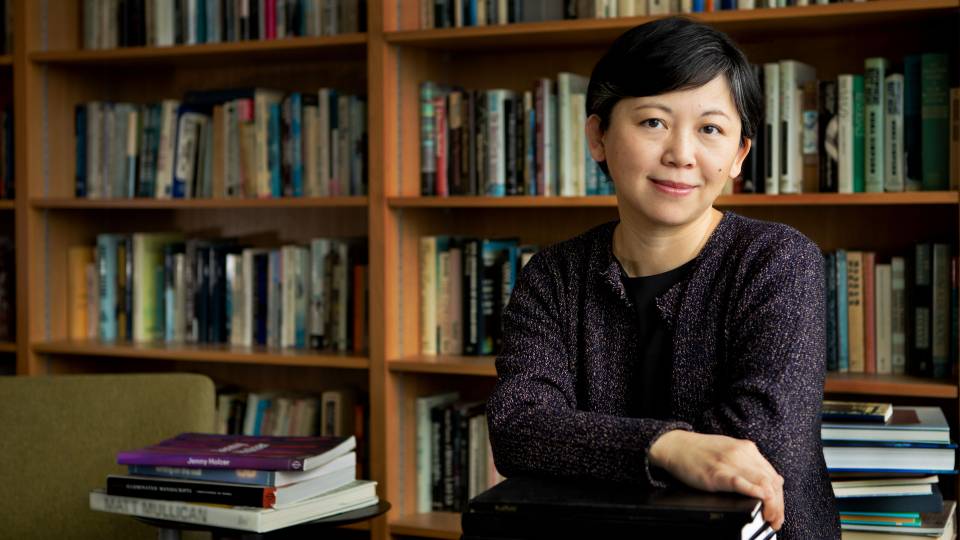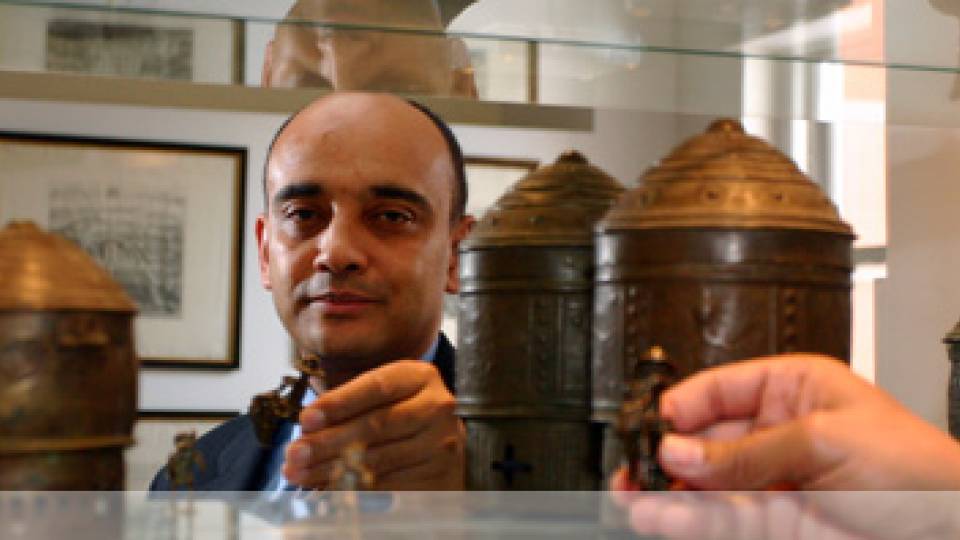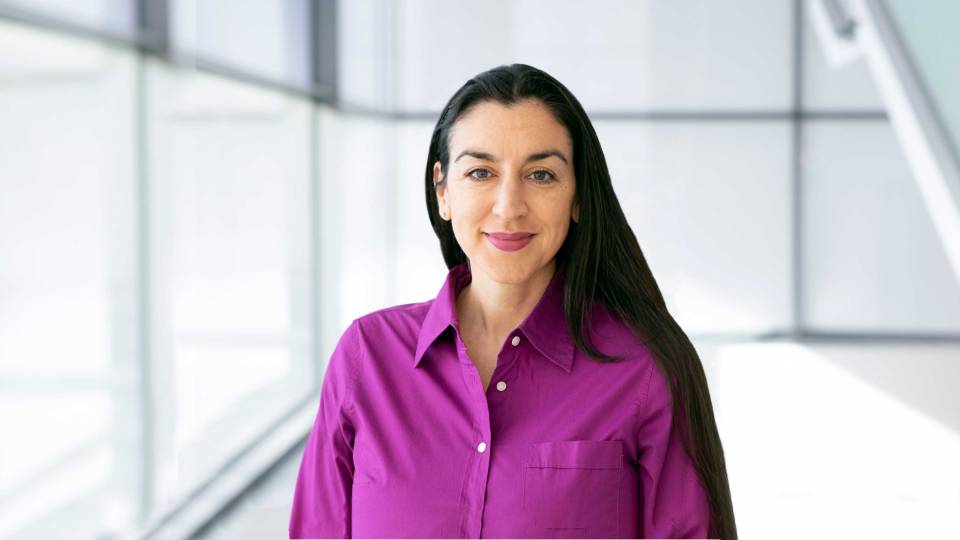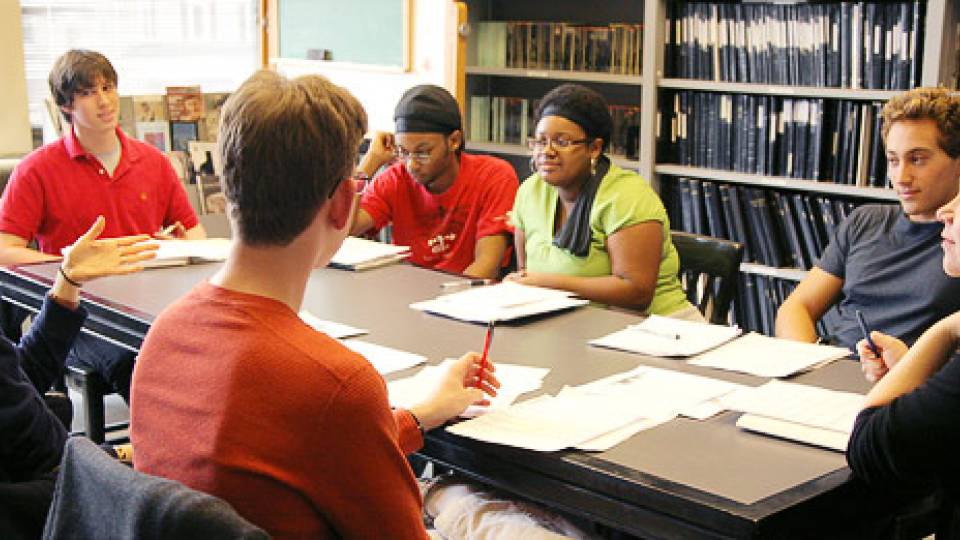Sandie Bermann, the Cotsen Professor in the Humanities and professor of comparative literature
Sandra (Sandie) Bermann, Princeton’s Cotsen Professor in the Humanities and professor of comparative literature, wanted to be a professional opera singer.
A lyric soprano, she began to prepare for a life in the opera at Smith College, studying French and Italian. She read literature in these languages as well as English literature. The experience set her on a new path. “I discovered my love of literature, love of language and love of writing about them,” she said. “I just decided this was probably more me.” She changed her major from voice to Italian.
After earning her Ph.D. at Columbia University, Bermann joined the Princeton faculty in 1976. Her teaching interests include migration and translation, literary theory, issues in comparative and world literature, poetry and poetics, and historiography and literary theory. She co-founded the Program in Translation and Intercultural Communication with Michael Wood, headed the president’s working group to create the now named Novogratz Bridge Year Program, and is faculty head of the interdisciplinary research community, “Migration: People and Cultures Across Borders.”
Bermann has immersed herself in the student experience at Princeton. She was head of Whitman College from 2011 to 2019, has been a Bridge Year fellow for years, and has served on dozens of committees related to academics, student life, diversity and inclusion, and service.
Below are musings drawn from a May 28 conversation.
Books opened everything for me. I remember that as a child I read whatever was available in my home, which was largely a set of Reader’s Digest abridged versions of the classics with gold edges. I also brought home books from the library — about dance, about artists, biographies, novels, poetry — and read in a corner in our living room. There I could dream. My first book of poetry was “A Child’s Garden of Verses.”
My parents owned a radio and TV sales and repair shop in Homewood, Illinois, a small, sweet town southwest of Chicago. My mother was a huge inspiration in my life — when I think of her, I think of strength, courage, persistence and hope. She was a stay-at-home mom but read all the time from the local library and wanted my sister and me to have opportunities she didn’t.
I’m a first-gen kid and I often tell this story to my first-year students. At Smith, it was hard at the beginning because I really did not know how to study. My high school was pretty easy. A friend at Smith suggested I try studying for a couple of hours every morning in the library. She said I should leave nothing to the last minute but rather plan my study time well in advance and stick to my schedule. These bits of advice made a big difference. Often, academic success is simply a matter of learning how to study.

Bermann (right) with her mother at home in 1955.
All of us have spiritual and intellectual and sometimes physical gifts that are part of our job in life to develop and to use, with all our power, for the greater good.
I still love opera, particularly romantic operas like Puccini’s “La Bohème” and Verdi’s “La Traviata.” Also, anything by Mozart, including “The Magic Flute.” The most recent I saw of these was, I think, “La Bohème” in Hamburg.
If I wrote a letter to my 25-year-old self, I would say: Continue the joy and know that things will work out. There’s no specific script to follow. Just be true to yourself and what you value. Consult your best instinct and judgment to write your own individual story.
I’d like to talk with Emily Dickinson to learn how she managed to write all she did, the way she did, in her seemingly restrictive domestic circumstances.
My must-haves on planes are a book I’ve been meaning to read and a small notebook for my own writing. The sense of solitude — and adventure — can be inspiring.
When arriving in Paris, the first thing I like to do is take a long walk — most often to the Palais Royal gardens where I so often had lunch as a grad student doing research at the Bibliothèque nationale. Sometimes I simply walk along the banks of the Seine as far as I can. If I stop along the way, it will be for a café allongé and perhaps a croissant. I’ve been going to Paris for more than 40 years with my husband every summer and on every sabbatical.
If I could spend the summer with one literary figure it would be the French poet René Char. He was not only a literary figure but also a Resistance fighter in World War II. I am working on a book about his poetry during the war years. I would like to ask him about his ability to combine wartime heroism (and despair) with the keenest appreciation of nature and love. He wrote things like “What can we do without the unknown before us?” and “Be part of the leap, not the feast afterwards, its epilogue.” I find these precious ways of thinking about life — that you don’t know what lies ahead, you work creatively with that, you appreciate each new beginning. It takes courage, imagination and commitment.
I value caring about each individual student, trying to consider them as whole persons, and doing what I can to help them flourish. This is, of course, one of the great pleasures of having children as well (a source of inestimable joy in my own personal life).
The opening lines of Dante’s “Divine Comedy” are “Nel mezzo del cammin di nostra vita mi ritrovai per una selva oscura ché la diritta via era smarrita ...” The lines suggest a difficult and mysterious space, one where things are going to change radically. I love the unknown in this, the reflection, the necessary learning, the exploration.
There is the historical sense that maybe everything is translation. If we look back in history, every poet, every writer, is taking from a previous text, which itself translates from others. All of culture is made of this deep archaeology of translated texts that subtends and complicates our sense of national traditions. We’re always more “global” than we think.
Migration is very closely connected to translation. When people migrate (it’s been said by Salman Rushdie) they are “translated” into a new context — bringing languages and cultures while connecting with new ones. This sense of migration/translation has problematic sides to it, as well as hopeful ones. It’s important to consider both.
Migration is perhaps the key social issue of our time and for our students, and it’s not going away.
Religious scriptures as well as the Odyssey, the Mahabharata, Gilgamesh, so many early epics are about movement, about migration, this is not something new. Migration has always entailed encounters of people, cultures, stories from all around the world, from ancient times to the present. We have to keep attending to them. Together they create our global environment, revealing differences and commonalities, both difficulties and triumphs. It’s also really important that we think about the most effective ways to use the interwovenness of the social sciences and the humanities to come up with some creative solutions to the legal, political and deeply human problems that migration poses today.
Certain women made all the difference at Princeton for me when there weren’t many women around. When I was going through the tenure process, the historian Natalie Davis, a valued mentor, suggested, “Just think about why you went into this,” which was my way of getting through things. Many of these women became close friends: Nancy Malkiel, Amy Gutmann, and newer arrivals to Princeton, Emily Mann and Elaine Pagels.
I admire my women friends because of the deepness with which they approach life, their full embrace of it. The complexity of their personhood is extraordinary, the good and the difficult, the joy and disappointment, at times, but the continued courage and belief in the power of life and what we can try to do in it.
One piece of advice I would tell female graduate students and early-career academics is: “Hold onto your dreams.” Try the best you can to do what you believe you are here to do. Go forward with courage. There will be real challenges. You’ll have to negotiate them. And you will.
As head of Whitman, I often asked first-year students what values they believe are important and that have brought them to where they are in life. Many stories emerged. One was about an international student’s grandmother who had labored in the fields with no schooling to allow her mother to have an education and then her mother raised her daughter to have her sights set on the best possible education she could get. A lot of students were in tears because of the beauty and power of it.

Bermann, who served as head of Whitman College from 2011-19, chats with Whitman residential college advisers Renee Louis (left), a member of the Class of 2019, and Nicholas Johnson, a member of the Class of 2020.
When you read a poem, you have to read it attentively and read it again and again and think about it. That helps you understand more about the poem but you’re also aware that you’re never going to have the whole, and there’s a kind of humility that comes with that. I think of people that way. We may know someone really well, for many years, but they’re never fully known to us. They’re kind of a walking synecdoche — the part of speech in which a part represents the whole, like when you say “all hands on deck,” but you don’t mean hands, you mean people. A poem just gives you a piece of something much larger that you have to imagine.
In my freshman seminar this spring, a student said, “Well, I really couldn’t empathize with that character.” That’s good, it’s on purpose, it’s a provocative thing that the novel is doing. Literary texts, when they’re good, will often ask us to stand back and reflect, then to dig deeper and differently, to think about our expectations and open up to new and perhaps dissonant ways of thinking — and being.
One of the joys of being head of college is the opportunity to meet students from all over the world, from different backgrounds, races, beliefs. I try to remind students of the vast opportunities they have here to learn from one another — their classmates down the hall or across the table in the dining hall. Some of our most important learning experiences can come from such everyday encounters.
I’m in awe of our students because of their brilliant gifts and their own determination to work hard and to make themselves and the world better. I learn from them every single day.
I tell students that finding something that takes you away from academic and social pressures, even for a few minutes each day, can make a real difference in your happiness. I encourage them to find their own ways of relaxing and reflecting — whether by journaling, meditating, walking through campus, enjoying art, music, yoga, or dance, going to the gym or baking in a college kitchen.
Studying the humanities is valuable to all students — no matter what their major — because they teach us about human differences and open new ways of thinking. They connect us to our often surprising past and to futures we may never see. In these ways they ask us to reflect on what it is to be human, and can even teach us something about how to live together. The arts and humanities also continually remind us of the creative power of the imagination — needed in any profession, as in our everyday lives.
We’re not perfect. Not any person is. And not any great university is. I love that Princeton is forward-looking and self-reflective. Princeton has this kind of dynamism to it. If you have a really good intellectual argument for something you want to do, and you pursue it, it will usually happen. I think Princeton continually self-examines and it always wants to do better. I believe strongly in its efforts to diversify its student body. As head of college over the past eight years, it’s been exciting to see the difference this has made.
If I could give incoming first-year students at Princeton one piece of advice, I would say talk to your professors. Go see them during office hours. Invite them to lunch at your residential college. You don’t have to have a problem in a course to approach a professor. Go because there’s something about what they’re talking about that interests you. Or tell them what you’re puzzled about in the world. And then, be excited because you’re going to have a wonderful conversation.
I always hope and think that while working on my projects, I can also contribute more broadly. This is one of the things that makes an academic career so rewarding. I’d like my teaching, writing, organizing and collaborating to encourage others to recognize and use their own unique gifts as fully as they can — and with an aim toward something larger than themselves.

